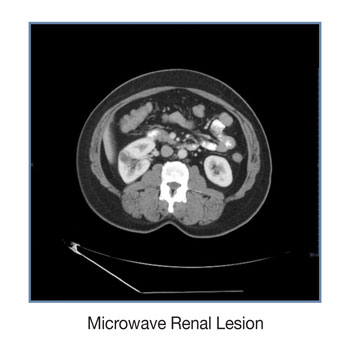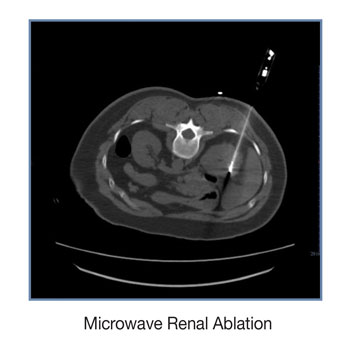Thermal Tumor Ablation Treatments in The Greater Houston, TX Area
A minimally invasive local treatment for cancer, ablation uses imaging techniques such as ultrasound or CT to guide a needle into the tumor, with extreme heat or cold then used to kill the tumor cells, sparing the surrounding structures. This non-surgical approach to treating tumors is performed by Synergy Vascular and Interventional radiologists at any of our 10 Houston-area hospital and outpatient center partners. It is done on an outpatient basis, often without a hospital stay, and with minimal recovery after the procedure compared to more traditional invasive surgical approaches. Ablation can also be performed for many patients who otherwise may not be eligible for more invasive surgery, as the entire procedure is done through an incision the size of a pinhole. Call (713) 621-7436 to schedule.
Examples of ablation technologies include microwave ablation, radiofrequency ablation, and cryoablation. Microwave ablation and radiofrequency ablation utilize heat to kill tumor cells, while cryoablation utilizes extreme cold to kill cancerous cells.
Ablation therapy can be utilized for primary and metastatic cancers in multiple sites, including the kidneys, liver, lungs, and bone/spine. After ablation, dead tumor cells are slowly broken down by the body’s immune system, leaving behind a small scar.
- Radiofrequency ablation (RFA)
During treatment, a special antenna needle probe is positioned inside the tumor. High-frequency electric currents are through an electrode in the needle probe, creating a small region of heat, locally increasing tissue temperature to destroy the tumor. - Cryoablation (aka cryosurgery, cryotherapy)
Kills cancer cells using extreme cold. A cryoprobe using compressed argon gas is inserted into the tumor and activated to create an ablation zone of minus 20 to minus 40 degrees centigrade, with freeze-thaw cycles causing irreversible cell death. The low temperatures also cause an ice ball to form at the ablation site, which can be used to monitor the ablation with real-time imaging. - Microwave ablation (MWA)
Is similar to radiofrequency ablation, but utilizes microwaves instead of electrical current to generate a region of heat within the tumor. MWA is less affected by heat losses from flowing blood than radiofrequency ablation, potentially making it more effective in larger tumors and in tumors near blood vessels, such as tumors in the liver.
Synergy Vascular and Interventional offers thermal tumor ablation services at each of the 10 hospital and outpatient facilities we serve in the greater Houston area including the communities of Pearland, Humble, Webster, Katy, Cypress, and The Woodlands, Texas. Call (713) 621-7436 to schedule.


